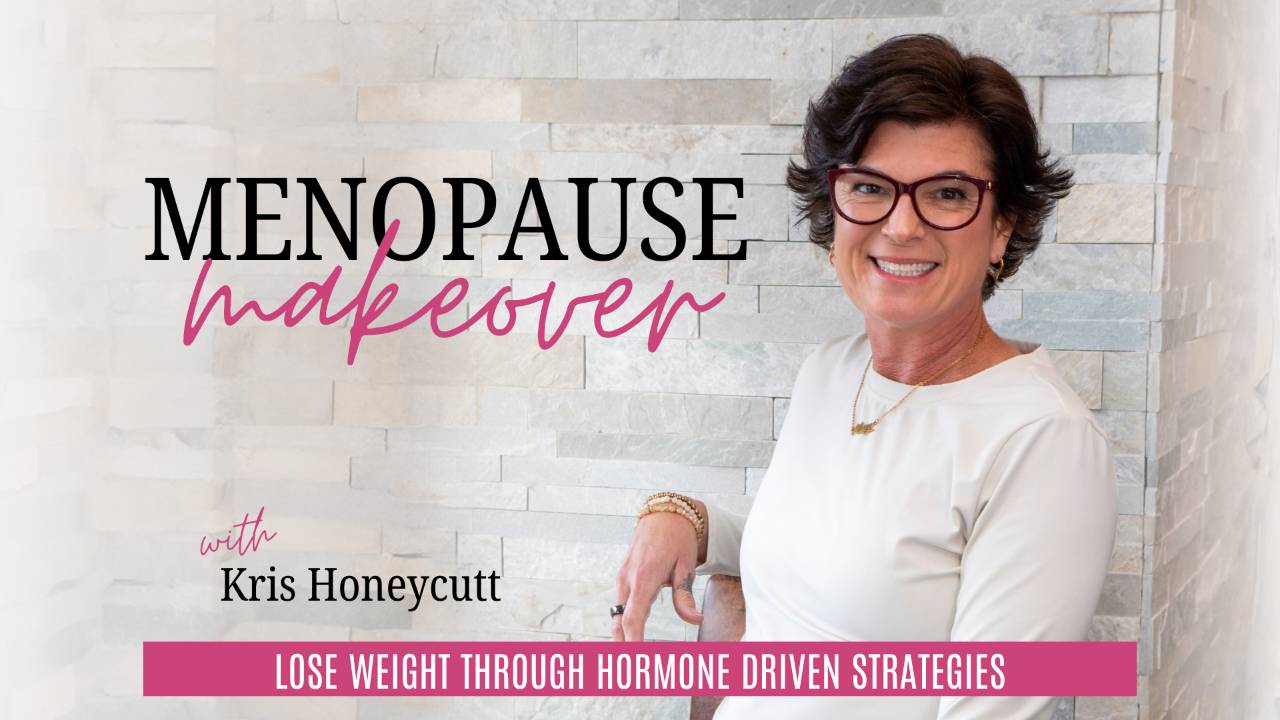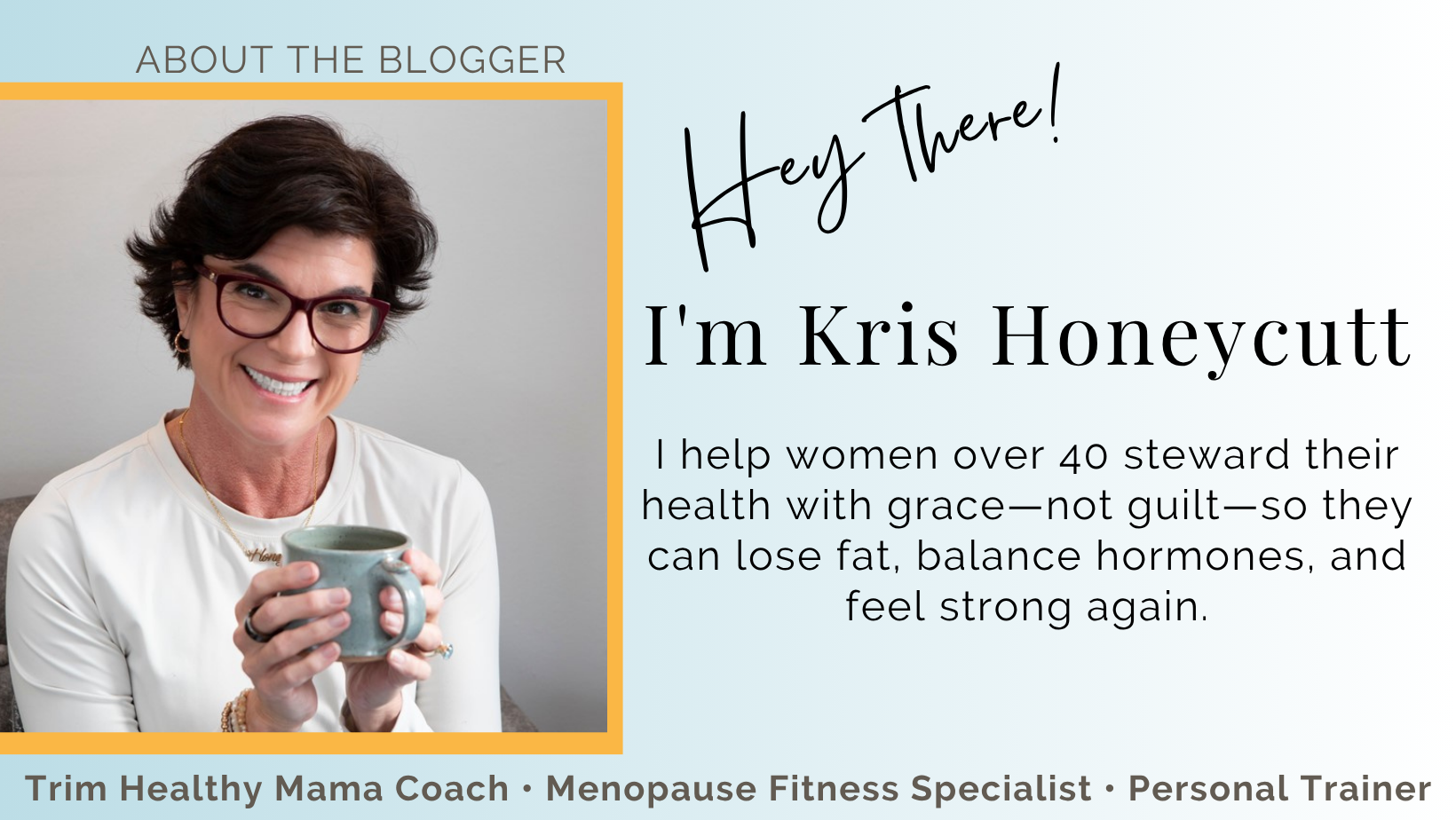Is Poor Sleep a Symptom of Menopause or Something More

Apple Podcast - Spotify - YouTube
Is Poor Sleep a Symptom of Menopause or Something More?
Let’s talk about something no one warned us about—waking up exhausted even after a full night's sleep.
If you're a woman in your 40s or 50s doing your best to stick with Trim Healthy Mama, lift weights, balance your blood sugar, and take care of your health, but you still wake up bone tired, I want you to know this:
You’re not lazy. You’re not broken. You’re in hormone transition.
And today, we’re going to unpack why you feel so drained—and what you can do to start reclaiming your energy, one habit at a time.
Why Am I So Tired All the Time Even When I Sleep?
This might sound familiar:
- “I’m getting 7 or 8 hours, but I wake up tired.”
- “I keep waking up between 1 and 3am, and my mind is racing.”
- “I can’t fall asleep, or I fall asleep and then I’m wide awake at 2am.”
These aren’t just annoyances—they’re signals. Your body is working overtime to manage hormone changes, cortisol surges, and even blood sugar crashes… all while you’re trying to rest. No wonder you're waking up feeling like you ran a marathon in your sleep.
How Hormones Affect Sleep in Midlife
You may not realize how many systems are involved in your rest. In perimenopause, those systems start to shift.
Here’s what may be going on:
- Estrogen and progesterone naturally decline, and they both help regulate your nervous system and sleep rhythms
- Cortisol (your stress hormone) spikes when estrogen and progesterone are low, leading to midnight anxiety or 2am wake-ups
- Blood sugar can become unstable—especially if you’re not fueling your body consistently—which triggers wakeups and restless sleep
- Your liver and digestion also shift in midlife, affecting how you process food, toxins, and even thoughts at night
Your midlife hormones don’t just impact hot flashes and mood swings. They also deeply affect your ability to rest, repair, and recharge.
Does Perimenopause Affect Sleep?
Yes—perimenopause and menopause are both strongly linked to poor sleep.
Low estrogen impacts:
- Melatonin production
- Nervous system regulation
- Blood sugar and insulin sensitivity
- Body temperature (hello night sweats)
- Cortisol levels during the night
And progesterone is your calming, sleep-supporting hormone. When it drops, many women experience insomnia, night anxiety, and trouble staying asleep—even if they’re exhausted.
What You Can Do to Support Better Sleep and Energy
Here’s where we stop the cycle of frustration and start building real support around your body.
✔ Support Your Hormones Naturally
- Talk to your provider about trying natural progesterone
- Consider magnesium glycinate in the evening to support nervous system calm
- Eat to support hormone production—real food, quality protein, and balanced fats
- Reduce xenoestrogens (fake estrogens from plastics, skincare, etc.)
✔ Fuel Your Body for Blood Sugar Balance
One of the biggest culprits behind night wakings? Blood sugar crashes.
Here's what to try:
- Eat 20–30g of protein with each meal and snack
- Avoid eating too close to bedtime, unless you’re waking up hungry
- If you need it, have a small snack before bed that includes protein and a slow-digesting carb (like a kefir smoothie or a boiled egg with a few berries)
- Make sure dinner includes fiber and healthy fat to slow digestion and stabilize blood sugar
✔ Create a Wind-Down Routine to Lower Cortisol
If your brain kicks on the second you lay down, you might be dealing with unresolved stress or cortisol surges.
Try these strategies:
→ Set a consistent bedtime and wake-up time
→ Avoid blue light and screens 1 hour before bed
→ Use a relaxation tool like the Abide meditation app, music, or deep breathing
→ Create a calming routine: sauna + cool shower, reading, coloring, or quiet stretching
→ Journal or practice gratitude to shift out of the anxiety loop
My favorite bedtime practice:
I go through the alphabet praising God—A: God, you are Awesome. B: God, you are Beautiful and you make beautiful things.
It gently rewires my focus when my brain wants to spiral.
✔ Build Muscle to Boost Mitochondria
Muscle isn’t just for metabolism—it's also for energy production.
Your mitochondria (the powerhouses of your cells) love strength training. When you lift weights regularly, you’re helping your body produce more energy naturally.
- Aim for 30-minute strength sessions 3–4 days per week
- Include rest and recovery to avoid overtraining
- Focus on building consistency, not perfection
When You’re Doing All the Things and Still Tired
Sometimes, despite doing everything right, you’re still waking up exhausted. That doesn’t mean what you’re doing isn’t working—it just means you may need to dig a little deeper.
Things to look into:
→ Thyroid health – Ask for a full thyroid panel, not just TSH
→ Adrenals – Chronic stress and poor recovery may need targeted support
→ Micronutrient levels – Especially iron, magnesium, B12, and vitamin D
→ Sleep environment – Temperature, light exposure, and consistent sleep schedule
And maybe, just maybe, it’s time to give yourself a little grace and permission to rest. Sleep isn’t a badge of honor. It’s a healing tool.
Take the nap. Sleep in a little. Go slower in the morning. It’s not indulgent—it’s restorative.
Poor sleep in perimenopause isn’t just about staying up too late or needing melatonin. It’s a whole-body issue, driven by shifting hormones, stress overload, blood sugar swings, and often years of doing too much.
But you are not stuck here.
You can learn to work with your body instead of against it. You can balance your blood sugar, support your hormones, build strength, and prioritize real rest.
And most importantly—you can do it with grace, one small step at a time.




